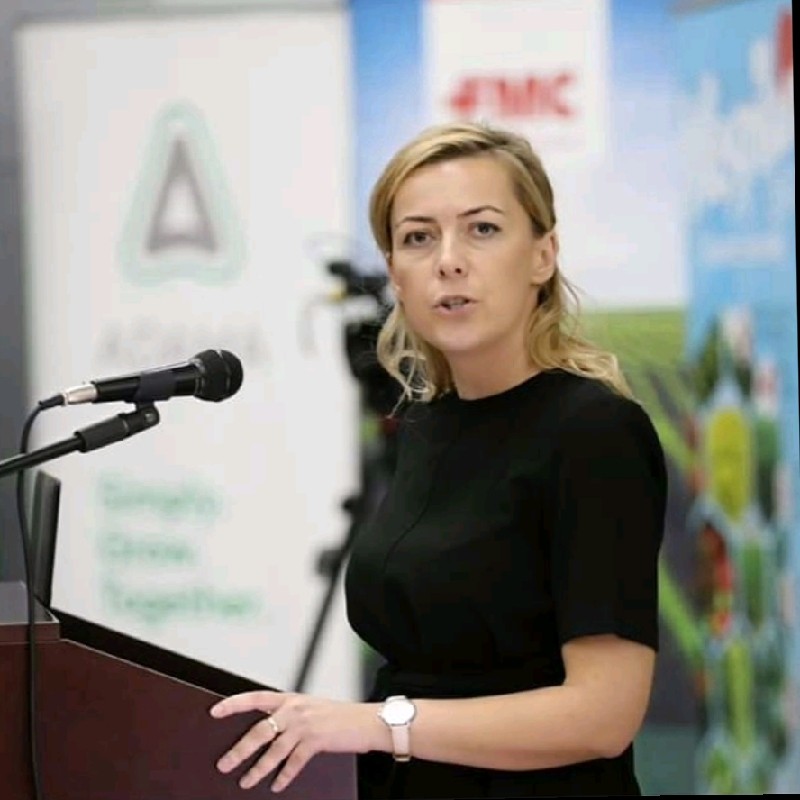Some advice for farmers who already have crop insurance and for those thinking of getting one.
Adverse weather conditions are common companions in our lives. It is difficult to predict weather conditions, even if there is a long experience from the past. Global climate change and the probability that bad things may always happen lead us to thinking about how to insure this uncertainty.
The following text is our message to the farmers who already have crop insurance and those who are envisaging to buy an appropriate product.
First of all, why do I need crop insurance?
In the practice of farming risk management, there are several tools for dealing with weather risks, in particular:
- use of weather forecasts;
- application of irrigation systems;
- technologies of minimum tillage;
- use of more drought-resistant varieties / hybrids;
- diversification of crops, varieties / hybrids, growing regions, sowing dates;
- external borrowing, government support, aid from friends after a damage has occurred.
Is this enough to be sure that I, as a farmer, will have guaranteed yield and financial results?
Of course, not.
The best irrigation technologies and moisture saving practices will help to prevent or mitigate the loss, but, unfortunately, not in full. It is like in aviation, where people care for the utmost safety of flights, but there are still parachutes and oxygen masks on board.
Some farmers rely on the strategy to compensate losses of bad years by the yield surplus of good years. However, such practice is getting more and more problematic, as we are facing more often than before consecutive bad years (e.g. 2018 and 2019 in Poland and Lithuania). Sometimes there are even three bad years in a row. Imagine!
Moreover, such a self-retention strategy for losses requires actually more money than buying insurance. You, as a farmer, can say “I will no longer buy a new Range Rover right now, as I have to freeze my funds to cover my loss caused by the next drought”.
In some CEE countries, farmers do not have a long-term risk management strategy and live just as they are, despite facing a lot of risky situations. If you really think to sell your farming business at any time, the value of your company will be much higher, if there is a stable annual cashflow that is supported by an effective crop insurance policy.
And let’s not forget about your health! A farmer sleeps better when he has an appropriate insurance policy, he feels much safer, especially if his cover is provided by a recognized insurance company, who cares for long-term relationship.
Find the right insurance company
You can trust your partner after you have made a thorough check. It is true that there are sometimes complaints about insurance products and companies. But on the one hand people tend to speaking 10 times more about bad experience than about positive events. On the other hand, mistrust can be a result of misunderstanding. First of all, we recommend to our farming clients to understand who their insurers really are.
Some points for you to consider and to ask your insurance agent:
- Who is the shareholder of the insurance company?
- How long do they exist?
- Who reinsures the risks of damage to your crops?
- How much will the insurer really pay from his own account in case of a catastrophic weather event, i.e. when the other farmers will also suffer loss?
- What was the ratio between collected insurance premiums and payments in the past?
- How many people with agronomic education or practical experience in agronomy work in their staff?
- How many crop insurance contracts do they have in their portfolio and how many insurance claims were made?
- Are there any substantial loss payments per single claims?
- Are there any farmers who received significant payments and can recommend this insurance company to you?
Realize the gaps in your coverage
The second thing suggested by us is that you understand your insurance cover.
In CEE/SEE markets it is difficult to find the ideal crop insurance. Due to the nature of agriculture itself, detecting the ideal insurance solution is generally not easy. But there are some insurance markets that reach some level of excellence thanks to their long-time tradition of public and private partnership in agriculture. However, they do not work in most cases for Central and Eastern Europe … We hear very often from European insurers about their “low risk appetite”!
Our checklist to investigate your coverage is as follows:
- Is the sum insured high enough to cover potential loss?
- How is the yield to be insured defined?
- When does the coverage incept and end?
- How fast will my crops be admitted for insurance?
- Are there any additional indemnity limits?
- How is the yield loss estimated?
- What is the methodology of calculating the predicted harvested yield?
- Are all my production perils covered?
- How high is the deductible?
- How is the deductible applied (per field, per loss, per crop, per farm)?
- Are there any additional franchises or deductibles?
- Are all my crops covered?
If you are just starting with crop insurance, we also advise to make historical simulations of pay-outs – how much indemnity would you have received if you had had this crop insurance contract in the past, i.e. when your loss had really occurred?
However, please be aware that in a short-time perspective you always pay for insurance more than you may get back in loss payments. But think of the fact that the insurance premium has to contain reserves for the probability of catastrophes and a possible deviation from short-term (10-15 years) statistics. Some new losses might occur on your farm, that you did not experience in your past farming history. Moreover, the climate change trend is not quite optimistic and, as a rule, does not lead to expectations of better yields…
If something is not possible to insure (lower deductible, higher limit, a specific peril, early risk period etc.), keep in mind that some gaps in the coverage can be eliminated by alternative risk transfer solutions, like parametric insurance, weather derivatives and captives.
Mind the insurance wording
You are definitely right that insurance wordings are boring and difficult to read, but “the devil is in the details”. When it comes to the big loss, all such details will be relevant.
Please, be careful with the following clauses of insurance wording:
- Is your insurance contract really complete with all wordings? It may happen that some insurance terms & conditions are not provided to you for your consideration. They might contain additional exclusions from insurance coverage, as well as other clauses of significance, like special warranties.
- There should be no contradiction between single wordings. Otherwise you need an additional clause that clarifies which stipulation is the right one in a given situation.
- Is there a right of the insurer to terminate the contract unilaterally during the contract period?
- What are the definitions of the insured risks?
- How is the stipulation in respect of change in risk during the policy period?
- Is the methodology of loss estimation fully documented and clear?
- Are all documents and additions related to the insurance contract (incl. crop survey protocols) signed by the authorized people?
- Is the insurance company obliged to leave an original copy of any crop/loss survey report at once on the farm?
- Is there any deadline stipulated for crop surveys after the loss has occurred?
- Is the farmer allowed to leave some samples for an alternative expert opinion?
- How does the “gross negligence clause” look like?
- What are the deadlines for the insurer’s right to postpone their decision on claims payment?
Find the right partner to help
And last but not least: Never be alone! Find the third party who can help you in case of any problem with insurance products or insurance companies. You can ask for the help of the professional broker, as he is highly skilled and experienced in respect of insurance wordings, he thoroughly knows the insurance markets and he has developed good working relationships with crop insurance risk carriers.
Related Insights
Pillar of Our Strategy Is Specialisation – Interview With Georg Winter
Georg Winter offers some insights into his vision for GrECo. Interview was originally published in Lockton Global Partners Magazine.
‘Our only focus is on our client’s and people’s needs’
Ante Banovac shares his thoughts about future risks facing the insurance industry and the state of the insurance market in Serbia, Slovenia and Croatia
How bad was drought this year in your region and how much insurance would help to protect against losses?
Such a big drought leads to many negative consequences in many industries, especially in agriculture, energy, logistics, and forestry.









